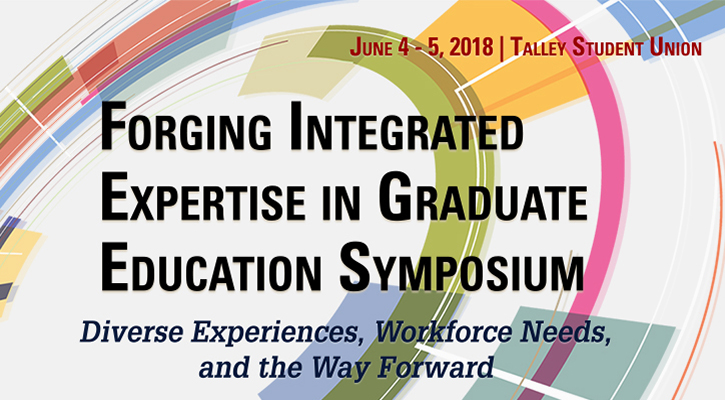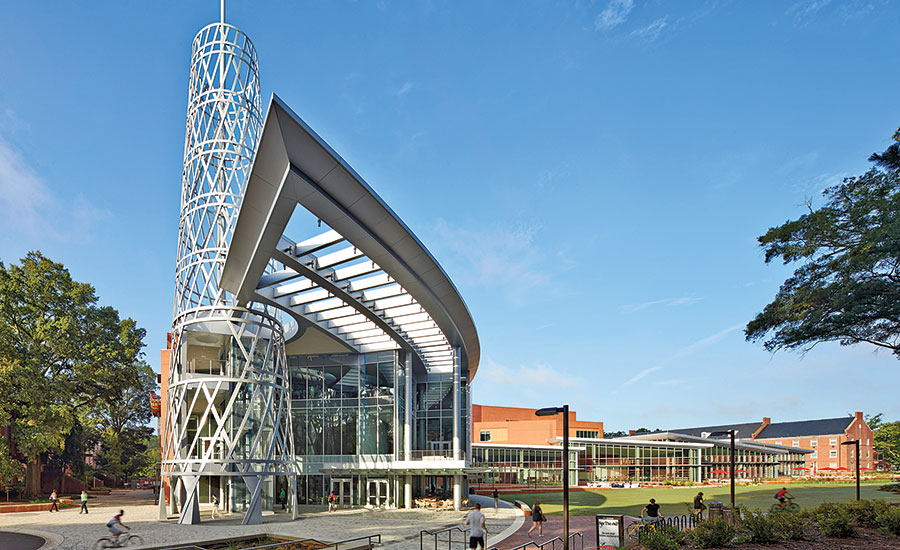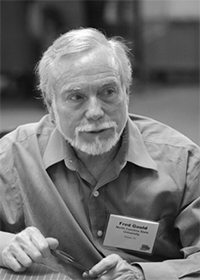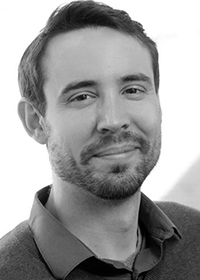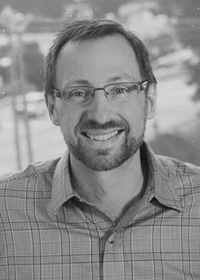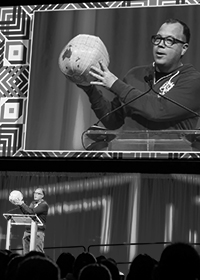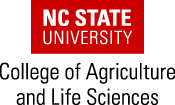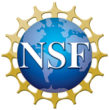ABOUT

Forging Integrated Expertise in Graduate Education
June 4 – 5, 2018 | Raleigh, North Carolina
Keynote Speakers | Laura Regassa | Terri Lomax
We live in an interconnected world, with complex problems, emerging technologies, and limited resources. As noted in the National Science Foundation’s 10 Big Ideas for Future NSF Investments:
“The grand challenges of today — protecting human health; understanding the food, energy, water nexus; exploring the universe at all scales — will not be solved by one discipline alone. They require convergence: the merging of ideas, approaches and technologies from widely diverse fields of knowledge to stimulate innovation and discovery.“
This workshop was originally conceived as a Capstone Symposium for the NC State NSF-IGERT “Genetic Engineering and Society: The Case of Transgenic Pests” that had equal contributions from the natural and social sciences. It would be a place to celebrate accomplishments and share valuable lessons learned. As time went by though, this idea grew into something more.
An integrated, transdisciplinary approach to graduate student training was more than simply a feature of the program, it was its core. Our students became “T-shaped” — equally adept at thinking about and solving problems around policy and governance as they are with biomathematics and synthetic biology.
At the same time, programs were being developed in other places around issues like plant science, engineering, and artificial intelligence. What insights and experiences could they share with institutions and organizations?
The workforce of tomorrow will require deep integration on issues, not disciplines. And we, as academics, industry professionals, civil servants, and stakeholders, have a responsibility to prepare our students for the challenges that lie ahead.
At A Glance
What is this symposium about?
Get an in-depth look at graduate programs focused on developing professionals equipped to solve specific, complex challenges using integrated, convergent approaches.
- Day 1 | Diverse Experiences in Integrated Graduate Education
- Day 2 | Workforce Needs and the Way Forward
Who Should Attend?
University faculty and administrators, researchers, government administrators and policymakers, industry and NGO professionals, funders, and innovative thinkers.
Symposium Dates:
Monday, June 4 – Tuesday, June 5, 2018
- Day 1 | 8:00 AM – 5:00 PM + Happy Hour!
- Day 2 | 8:00 AM – 2:00 PM
Webcast:
Symposium Webcast videos on YouTube
Cost:
This workshop is being offered at no cost thanks to support from our sponsors!
Event Location:
LIVE STREAM VIDEOS

PROGRAM

DOWNLOAD SYMPOSIUM PROGRAM BOOK
Day 1 | Diverse Experiences in Integrated Graduate Education
June 4 | 8:00 AM - 5:00 PM
8:00 AM | Breakfast
8:30 AM | NC State Welcome
Zachary Brown, NC State, Genetic Engineering and Society Center
Warwick Arden, NC State Provost
Richard Linton, NC State, Dean of CALS
8:50 AM | STEM Graduate Education: Advancing Knowledge & Transforming the Future
Laura Regassa, Director, NSF National Research Traineeship (NRT) Program
Table Discussions: Response to Keynote
9:45 AM | Branches from the Same Tree: Integrative Learning in Higher Education
Pamela L. Jennings, Head, Department of Art + Design, NC State (incoming), and NASEM Committee Member for the report: The Integration of the Humanities and Arts with Sciences, Engineering, and Medicine in Higher Education: Branches from the Same Tree (2018)
Table Discussions: Response to Report
10:20 AM | Coffee Break
10:45 AM | Experiences from the NC State IGERT PhD program
Fred Gould, NC State, Genetic Engineering and Society Center: "IGERT - Genetic Engineering and Society: The case of transgenic pests," 2011-2017. Student speakers to discuss cohort goals and outcomes, as well as personal experiences, challenges, and interdisciplinarity:
11:05 AM | 2012 Cohort: Mosquitoes & Human Health
Genetically Modified Mosquitoes (GMM) Dengue Control in a Social and Cultural Context
Amanda Walsh, Senior Economist, RTI International
A Look Back at the IGERT’s Role in Shaping My Career as a Math Professor
Tim Antonelli, Assistant Professor of Mathematics, Worcester State University
11:25 AM | 2013 Cohort: Invasive Rodents and Biodiversity Conservation
Exploring the biological, ecological, and social implications of genetic techniques for invasive rodent eradications on islands
Megan Serr, PhD Candidate, Biological Sciences
Elizabeth Pitts, Assistant Professor of English, University of Pittsburgh
11:45 AM | 2014 Cohort: Agricultural Pests
Genetic Pest Management for Agricultural Insects
Jennifer Baltzegar, PhD Candidate, Genetics
Navigating Worldviews, Crossing Boundaries, and Finding a Safe Place: How the IGERT Fellowship Influenced My Graduate Experience
Jayce Sudweeks, PhD Candidate, Public Administration
Table Discussions: Response to IGERT Cohort presentations
12:30 PM | Lunch
Buffet lunch
1:00 PM | Poster Session
DIVERSE EXPERIENCES IN INTEGRATED EXPERTISE
1:45 PM | Toward transferable and sustainable models for interdisciplinary training in environmental sustainability
Jeff Kelly, Aerobiology, University of Oklahoma | NRT - Aeroecology as a Test-bed for Interdisciplinary STEM Training
2:05 PM | Graduate Education Informed by Social Network Analysis
Sez Atamturktur, Engineering, Clemson University | NRT: DESE - Preparing Resilient and Operationally Adaptive Communities through an Interdisciplinary, Venture-based Education
Table Discussions: Response to speakers
2:40 PM | Coffee Break
DIVERSE EXPERIENCES IN INTEGRATED EXPERTISE (continued)
3:10 PM | Transdisciplinary, Parallel Play, or Something in Between?
Rebecca Jordan, Ecology and Citizen Science, Rutgers University | NRT - Coastal Climate Risk and Resilience (C2R2)
3:30 PM | Fostering the Future from FFAR
LaKisha Odom, Foundation for Food and Agriculture Research
Table Discussions: Response to speakers
4:05 PM | Preview of Day 2
4:15 PM | Adjourn
4:30 PM | Poster Session + Happy Hour (until 6 PM)
Internal and external student posters, followed by Drinks and Heavy Hors D'oeuvres at 1887 Bistro @ Talley Student Center
Day 2 | Workforce Needs and the Way Forward
June 5 | 8:00 AM - 2:00 PM
8:00 AM | Breakfast
8:30 AM | Announcements, Recap of Day 1
Zachary Brown, NC State, Genetic Engineering and Society Center
Jason Delborne, NC State, Genetic Engineering and Society Center - Morning moderator
8:45 AM | Keynote: The Future of Innovation: Workforce Needs and the Way Forward for Graduate Education
Terri Lomax, CEO, Innovation Ecosystem
Table Discussions: Response to Keynote
9:40 AM | Meeting the challenges of integrative doctoral program initiatives
Brian Verrelli, VCU Integrative Life Sciences
Table Discussions: Response to Speaker
10:15 AM | Coffee Break
10:30 AM | Panel Discussion: Workforce Needs
Hear perspectives on how the needs of the workforce have evolved from representatives from diverse fields and sectors:
WELCOME: Chancellor Randy Woodson, NC State
MODERATOR: Zachary Brown, NC State, Genetic Engineering and Society Center
Government | David Price, 4th District, NC Congressman
University Development | Stephen Briggs, Plant Sciences Initiative
Industry | Corey Scott, Cargill
NGOs | Maggie Monast, Environmental Defense Fund
Regulatory | Sheryl Kunickis, Office of Pest Management Policy, USDA
Q&A: Response to Panel
11:45 AM | Where Do We Go From Here?
Fred Gould and Zachary Brown, NC State, Genetic Engineering and Society Center
12:00 PM | Lunch with Break Out Groups
Boxed lunches provided
12:30 PM | Break Out Groups Discussion
Moderated by GES faculty, scribed by IGERT students
1:20 PM | Reconvene and Report Out
1:50 PM | Overview and Perspective
Jennifer Kuzma, NC State, Genetic Engineering and Society Center
2:00 PM | Adjourn
SPEAKERS

DAY 1 | Laura Regassa, National Science Foundation
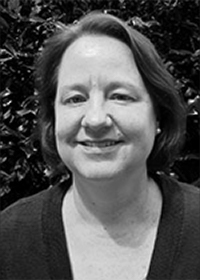
Dr. Laura Regassa is a Professor of Biology at Georgia Southern University. She is currently on assignment at the National Science Foundation as a Program Director in the Division of Graduate Education. At the NSF, she is a program officer for the NSF Research Traineeship (NRT) Program.
Dr. Regassa served as the director of a graduate student training and professional development program at Georgia Southern, the Molecular Biology Initiative. She has a Ph.D. in bacteriology from the University of Wisconsin-Madison, with past and present content-area research interests in bacterial pathogenesis, biodiversity and systematics. Prior to her assignment at the NSF, Dr. Regassa served as Editor-in-Chief for an international educational journal and held numerous leadership roles for national, regional and international professional organizations.
DAY 2 | Terri Lomax, CEO, Innovation Ecosystem
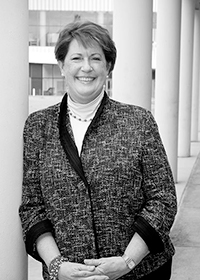
Terri L. Lomax, Ph.D., has over three decades of experience developing and leading innovative programs in academia, government, and nonprofit organizations and facilitating partnerships between those organizations and industry to form thriving innovation ecosystems. Until recently, as Executive Vice President at RTI International, a nearly billion dollar non-profit research institute, she led their innovation, laboratory science, and engineering programs.
As the Vice Chancellor for Research, Innovation, and Economic Development at NC State University, Terri led the research enterprise, technology transfer, and university-industry partnerships. Under her leadership, NC State experienced record levels of external research funding and commercialization agreements; implemented a national best practice model for partnering with industry; and became the only university in the nation to house two National Science Foundation Engineering Research Centers. Via strategic allocation of institutional research funding, she drove the success of the research and innovation enterprise to impact social benefit and economic development. As Dean of the Graduate School at NC State, Terri led the development and implementation of a strategic plan for graduate education that increased career-oriented skills training and professional development options, grew the number of professional degrees, and provided interdisciplinary and international opportunities that enhanced its ability to recruit and retain the best and brightest graduate students.
Sez Atamturktur, Clemson University

Dr. Sez Atamturktur serves as the Assistant Vice President for Research Development and Provost’s Distinguished Professor at Clemson University. Dr. Atamturktur is a professor of environmental engineering and earth sciences, professor of mechanical engineering, professor of industrial engineering, and professor of civil engineering. She is the director of the National Science Foundation-funded National Research Traineeship project at Clemson, with funding for over 30 doctoral students and a goal of initiating a new degree program on scientific computing and data analytics.
Pamela Jennings, College of Design, NC State

Pamela L. Jennings, PhD, is the incoming Professor and Head of the Department of Art + Design in the College of Design at NC State. She is the Principal Researcher of CONSTRUKTS, Inc., an NSF-funded consumer electronics research company developing mixed-reality and wireless technologies for learning. Pamela served as a committee member on the National Academies of Sciences, Engineering, and Medicine 2018 consensus report, The Integration of the Humanities and Arts with Sciences, Engineering, and Medicine in Higher Education: Branches from the Same Tree.
Rebecca Jordan, Rutgers University
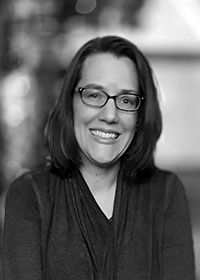
Dr. Rebecca Jordan is currently a Professor of Environmental Education and Citizen Science and the Director of Program in Science Learning at Rutgers University in New Brunswick, New Jersey. She currently studies how people reason with data in formal and informal learning contexts. Dr. Jordan received her Bachelor’s degree in biological sciences from the University of Connecticut and her Master’s and Doctorate degrees in organismic and evolutionary biology from the University of Massachusetts – Amherst. Dr. Jordan also completed post-doctoral work at Princeton University and the University of North Carolina, Chapel Hill on the topic of ecology and evolutionary biology.
Jeff Kelly, University of Oklahoma
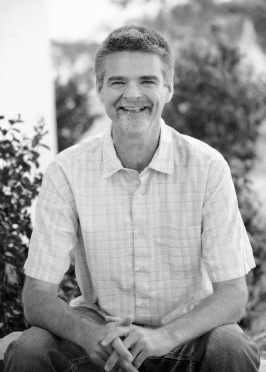
Dr. Jeff Kelly is a Professor of Biology at the University of Oklahoma, and Director of the Oklahoma Biological Survey. His research interests center on the ecology and conservation of migrant birds. He is fascinated by the way these animals’ life histories depend on environments at continental and hemispheric scales. The unique combination of their relatively small size (10 to 20g) and long distance movements also make these migrants fantastic sensors of the environment and potentially very valuable real-time indicators of our impact on the environment at large spatial scales. Dr. Kelly's current research is summarized on his website AnimalMigration.org.
Lakisha Odom, Foundation for Food and Agriculture Research

Dr. LaKisha Odom joined FFAR in September 2016 as a Scientific Program Director to pursue her commitment to promoting the use of innovative science and interdisciplinary thinking to tackle today’s complex challenges in food and agriculture. She is also extremely committed to cultivating increased diversity in a new generation of food and agriculture scientists.
Dr. Odom developed her passions for the inter-sectional space of research and policy while working at the U.S. EPA in the Office of Research and Development and the Office of Solid Waste and Emergency Response’s Brownfield’s Redevelopment Program. In her academic career at Tuskegee University, she continued to seek out opportunities to work in interdisciplinary and collaborative science, as a Create-IGERT fellow and as a researcher at Teagasc Research facility in Carlow, Ireland.
Stephen Briggs, Plant Sciences Initiative, NC State
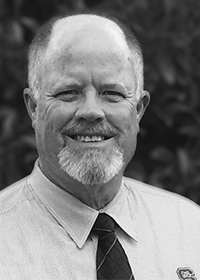
Steve Briggs joined NC State’s College of Agriculture and Life Sciences in August 2017 as the NC Plant Sciences Initiative (NC PSI) Launch Director. As Launch Director, Briggs has oversight of the 184,000 square foot PSI Building, is assembling the inaugural research project teams, and developing partnerships that will establish North Carolina as a world leader in plant sciences. Prior to joining NC State, he was the Senior Vice President of Agronomy and Corporate Marketing for South Dakota Wheat Growers (SDWG), the largest farmer owned cooperative in the United States.
Learn more about Stephen Briggs >
Sheryl Kunickis, USDA Office of Pest Management (OPMP)
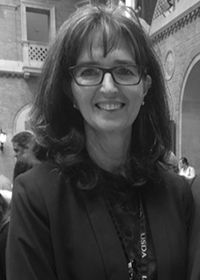
Dr. Sheryl Kunickis is the Director of the USDA Office of Pest Management Policy (OPMP). She has served in this position since May 2010. She represents USDA’s interests in FIFRA-related matters and is the USDA representative on the Pesticide Program Dialogue Committee (PPDC), an EPA Federal Advisory Committee. In 2013, she was Acting Director in the Office of the Chief Scientist, and from 2008 to 2010, Director of the NRCS Remote Sensing Laboratories (RSLs). Prior to assuming leadership for the RSLs, she served at the White House Council on Environmental Quality (CEQ) as Deputy Assistant Director for Agriculture, Lands, and Wildlife.
Maggie Monast, Environmental Defense Fund
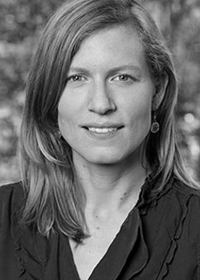
Maggie Monast is the Senior Manager for the Agricultural Sustainability program at the Environmental Defense Fund. She works with farmers, food companies, agricultural organizations and others to create an agricultural system that drives climate stability, clean water, and food security. Her team quantifies the farm financial impacts of conservation practice adoption, collaborates with major corporations to develop sustainability initiatives, and develops innovative financial incentives to advance sustainable agriculture. Maggie received her undergraduate degree in political science and economics from Tufts University and a Masters in Environmental Management from Duke University’s Nicholas School.
Congressman David Price
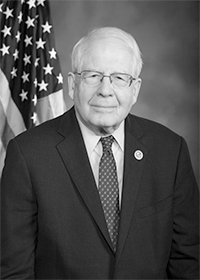
Congressman David Price represents North Carolina's Fourth District - a rapidly growing, research-and-education-focused district that includes parts of Orange, Durham, and Wake counties. David Price was first elected to Congress in 1987, representing North Carolina's Fourth District. He received his undergraduate degree at UNC-Chapel Hill and went on to Yale University to earn a Bachelor of Divinity and Ph.D. in Political Science. Before serving in Congress, Price was a professor of Political Science and Public Policy at Duke University. Among his many honors, Price was named a "Champion of Science" by the Science Coalition, was awarded the Charles Dick Medal of Merit by the NC National Guard, and is a recipient of the American Political Science Association's Hubert H. Humphrey Public Service Award.
Corey Scott, Cargill
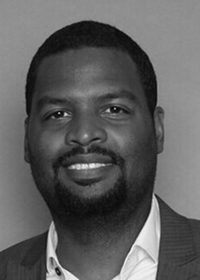
Dr. Corey E. Scott is a Principal Nutrition Scientist with Cargill in Minneapolis, Minnesota. Corey has previously worked for General Mills in Golden Valley Minnesota focusing on vegetable intake, phytochemicals, and human health. Prior to this, Corey worked as Global Nutrition Manager for Lipid Nutrition B.V., in The Netherlands, focusing on clinical research on novel lipids for infant nutrition, weight management, and diabetes.
Dr. Scott holds a PhD in Food Science and Nutrition from The Ohio State University, an MS in Chemistry from North Carolina A&T State University, and a BA in Chemistry from The University of North Carolina at Chapel Hill.
Brian Verrelli, VCU Integrative Life Sciences
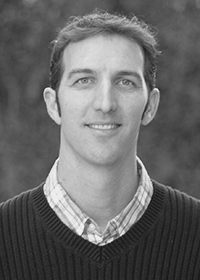
Dr. Brian Verrelli is Director of the Center for Life Sciences Education, which houses the Integrative Life Sciences Doctoral Program and Master’s degrees in Environmental Studies and Bioinformatics, at Virginia Commonwealth University. His research program focuses on using molecular population and evolutionary genetic approaches to address problems in human health and disease, biodiversity, and conservation.
Tim Antonelli, Worcester State University
Dr. Tim Antonelli is an Assistant Professor of Mathematics at Worcester State University where his work focuses on statistics and probability. Tim graduated from N.C. State University in 2015 with a PhD in Biomathematics and was a member of 2012 IGERT Cohort which focused on Mosquitoes and Human Health. While at NCSU, under the advisement of Drs. Alun Lloyd and Fred Gould, he developed mathematical models for novel control strategies of the dengue vector Aedes aegypti, such as releasing mosquitoes infected with Wolbachia, a bacterium that can spread through a population of Ae. aegypti and has been shown to block transmission of dengue virus. The international experience and focus on interdisciplinarity provided by participation in the IGERT program broadened his horizons, and he soon found himself immersed in a foreign culture during the first cohort’s time in Peru, learning Spanish, and eventually returning to pursue research experiments and guest lecture on math models at a Peruvian university.
Jennifer Baltzegar, PhD Candidate Genetics
Jennifer Baltzegar is a PhD Candidate in Genetics. She is a member of the 2014 IGERT Cohort which focused on Agricultural Pests. Her current work focuses on the population genetics of the insect pest species Aedes aegypti (Yellow Fever Mosquito) and Sitophilus zeamais (Maize Weevil). The 2014 cohort traveled to Mexico during the summer of 2014 to learn about the social and biological implications of genetic engineering in the country, particularly as that relates to the cultural importance of maize. Jen returned with fellow cohort member Mike Jones in the summer of 2016 to Oaxaca and Chiapas, Mexico, to conduct field work aimed at better understanding maize weevil (MW) impact on farming families and communities. She has worked with her cohort to write a paper geared toward an interdisciplinary audience titled Anticipating Complexity in the Deployment of Gene Drive Insects in Agriculture. She and her fellow cohort members also contributed to a correspondence in EMBO Reports titled CRISPR-based Gene Drive in Agriculture Will Face Technical and Governance Challenges. Both publications highlight the complex landscape that must be considered if and when gene drives are deployed for control of agricultural pests.
Elizabeth Pitts, University of Pittsburgh
Dr. Elizabeth Pitts is an Assistant Professor of English at the University of Pittsburgh. Her research blends rhetorical theory, organizational studies, and science studies to examine how technologies influence the nature of professional work and professional identity. Her current book project offers insights into a movement to make the coding of DNA as pervasive as the coding of software. By drawing parallels between the composition of genetically engineered organisms and the composition of persuasive speech and writing, the book facilitates humanistic inquiry into the material practices undertaken in biotechnology laboratories.
Megan Serr, PhD Candidate Biological Sciences
Megan Serr is a PhD Candidate in Biological Sciences. She is a member of the 2013 IGERT Cohort which focused on Invasive Rodents and Biodiversity Conservation. Her research is focused on characterizing genetic and behavioral differences between Mus musculus strains in collaboration with the Genetic Biocontrol of Invasive Rodents program (GBIRd) which aims to suppress invasive mouse populations on islands, by heavily biasing offspring sex ratios. Effective implementation of this approach will depend on engineered hybrid mice being competitive and able to mate successfully. Megan’s behavioral and genetic tests use wild house mice derived from an invasive population on the Farallon islands (MmF), a laboratory strain C57BL/6/129 (tw2), and hybrid wild-lab offspring.
Jayce Sudweeks, PhD Candidate Public Administration
Jayce Sudweeks is a PhD Candidate in Public Administration. He is a member of the 2014 IGERT Cohort which focused on Agricultural Pests. His current research investigates the public policy process and how the narratives created by various groups supporting or opposing biotechnology influence policy decisions. In 2014, Jayce participated in the International Genetically Engineered Machine Competition (iGEM) where his team won the Best Policy & Practices Project award. He has participated in several workshops hosted by the GES Center including: Graduate Professional Development Workshop: Intersections of Genetics and Society, USDA Stakeholder Workshop on Coexistence, and the Roadmap to Gene Drives: A Deliberative Workshop to Develop Frameworks for Research and Governance. Jayce was an assistant editor for the special edition of the Journal of Responsible Innovationthat published peer-reviewed articles from the Roadmap to Gene Drives workshop.
Amanda Walsh, RTI International
Dr. Amanda (Clayton) Walsh is a Senior Economist in the Innovation Economics group at RTI International. In her role, she analyzes the benefits and costs of public policy initiatives relating to innovation, technology and infrastructure improvements, and education and workforce training. Amanda graduated from NC State University in 2016 with a PhD in Economics and was a member of the 2012 IGERT Cohort which focused on Mosquitoes and Human Health. Her graduate research focused on using insights from applied microeconomics to study the impacts and control of mosquito-borne disease. Her GES collaborations studying the potential use of genetically modified mosquitoes to combat dengue fever culminated in the co-authorship of the introductory chapter of the text, Genetic Control of Malaria and Dengue, edited by Zach Adelman.
SPONSORS

Workshop supported by the National Science Foundation NSF Integrative Graduate Education and Research Traineeship (Award No. 1068676), NC State College of Agriculture and Life Sciences, and the Genetic Engineering & Society Center.
CONTACT US

Need more information about the Forging Integrated Expertise Symposium? Please feel free to contact us:
